Ricordi quando eravamo II
2017
L’opera è l’ultimo frammento affettivo che rimane di comode poltrone. Un tempo esse erano oggetto e soggetto di un vivere attivo, testimonianze in prima linea, nel loro essere oggetti comuni, di un costante chiacchiericcio, di uno scambio di parole, di linguaggi, di esperienze. Ora si spogliano delle loro vesti. I soli rivestimenti, così, divengono entità riconoscibili, acquistano un ruolo a sé e di per sé. Cuciti su di un tessuto bianco (anch’esso, vecchio lenzuolo, stralcio di quotidiano), sono resi, uno ad uno, bandiera alla rispettiva poltrona. Sono stracci che inneggiano alla serena sensazione di stabilità; effigi da un lato personalissime, ma dall’altro parte di un sistema di culture, di scambi, di collettività. Questo amplifica il loro essere bandiera: bandiera del singolo che riconosce la sua storia di famiglia, di vicinato, di intimità; bandiera del popolo tutto quando si scopre che parti di alcune poltrone hanno origini intercontinentali, dal Brasile all’Erzegovina.
“Ricordi quando eravamo II” è l’emblema del fallimento dell’idea condivisa di fermezza, dell’immobilità professata dal progetto moderno, una bandiera in frantumi che, rigida, non ha più la forza di attrarre e ammaliare il suo popolo.
Reliquaries of stories, spectators of intimate, one-on-one relationship, the work is the last affective fragment that remains of comfortable armchairs. Once they were the object and subject of an active life, witnesses on the front line, in their being common objects, of a constant chatter, of an exchange of words, of languages, of experiences. Now they strip off their own. Sewn on a white fabric (an old sheet), they are rendered, one by one, a flag to the respective armchair. They are rags that praise the serene feeling of stability; effigies on the one hand very personal, but on the other side of system of cultures, exchanges, communities. This amplifies their being flag: the flag of the individual that recognizes his family history, neighborhood, intimacy; flag of the people all when it is discovered that parts of some armchairs have intercontinental origins, from Brazil to Herzegovina. “Remember when we were II” is the emblem of the failure of the shared idea of firmness, it is a promise never kept, a shattered flag that, rigid, no longer has the strength to attract and enchant its the flag, therefore, becomes white as a sign of surrender, of defeat of the immobility professed by the modern project of each nation.
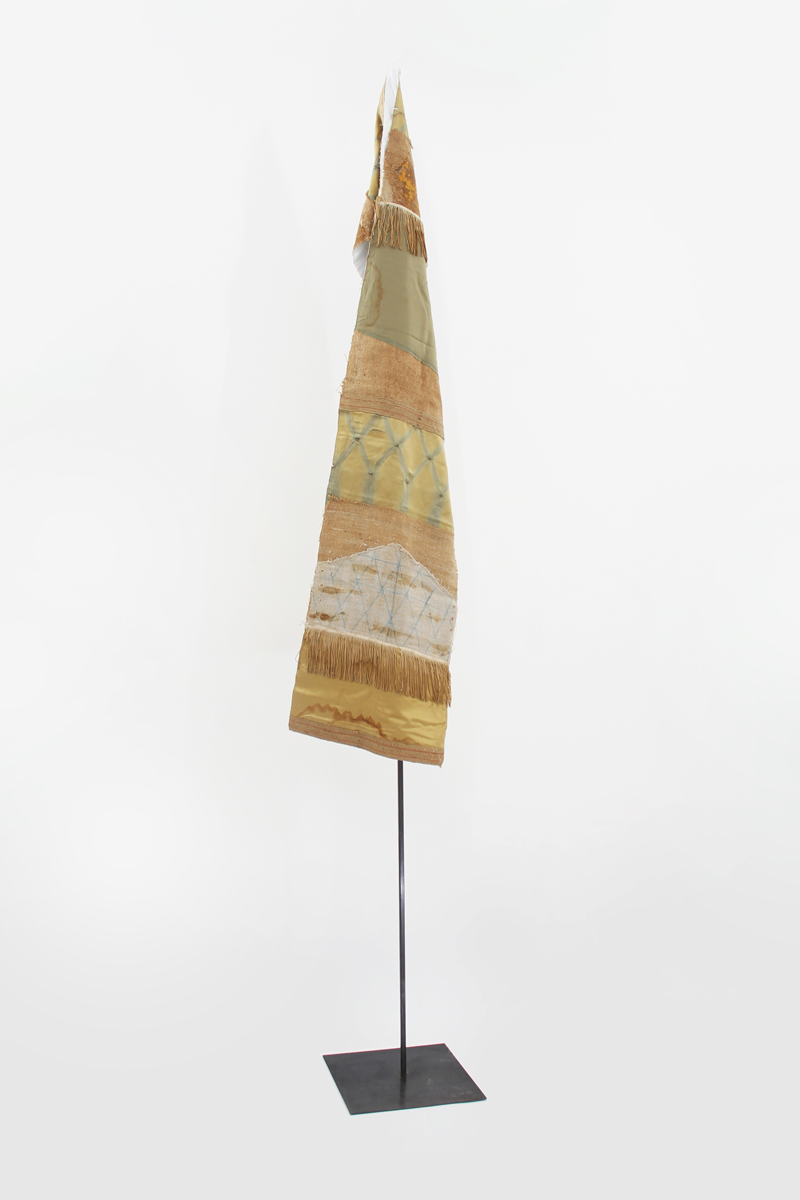
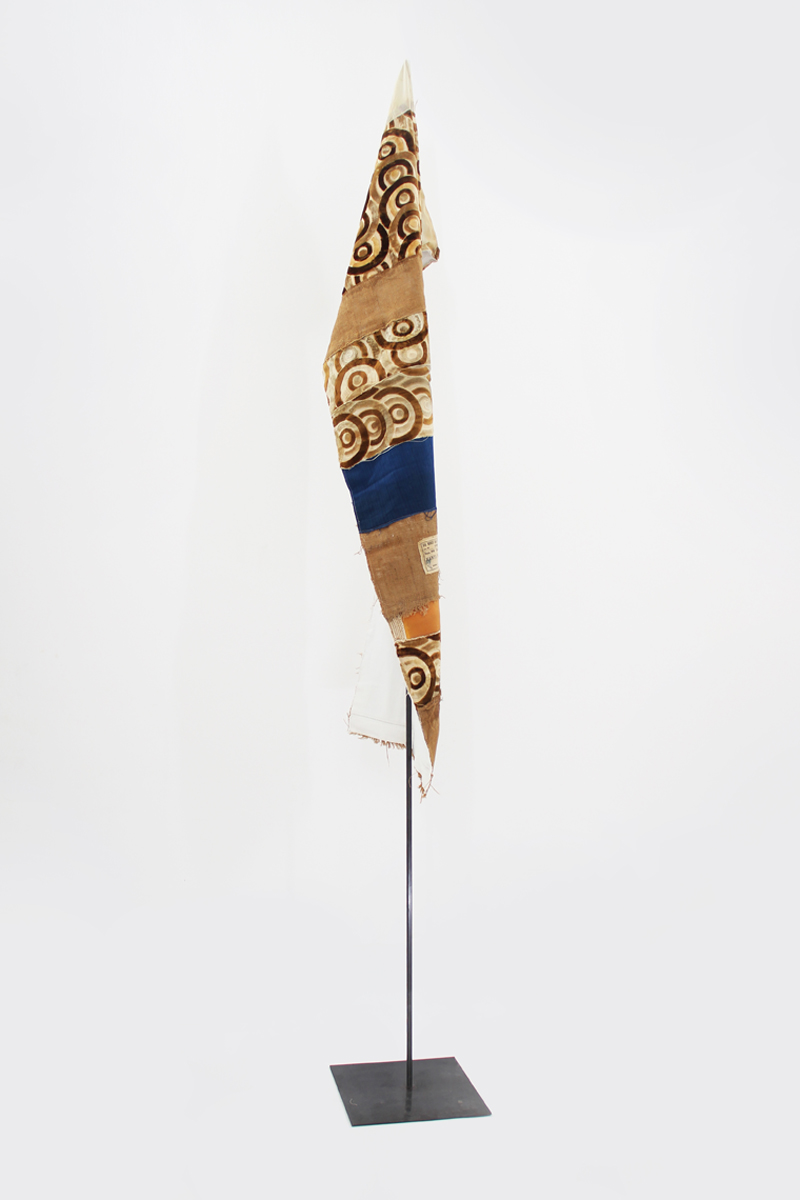
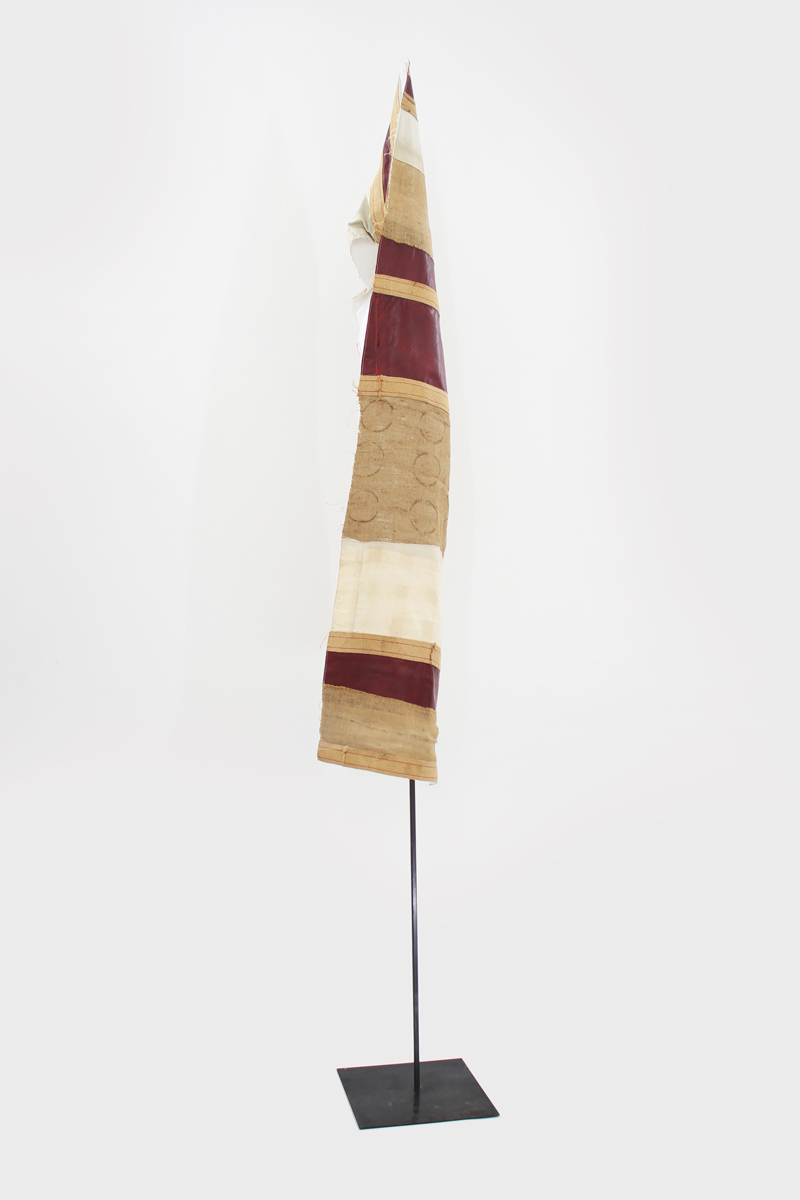
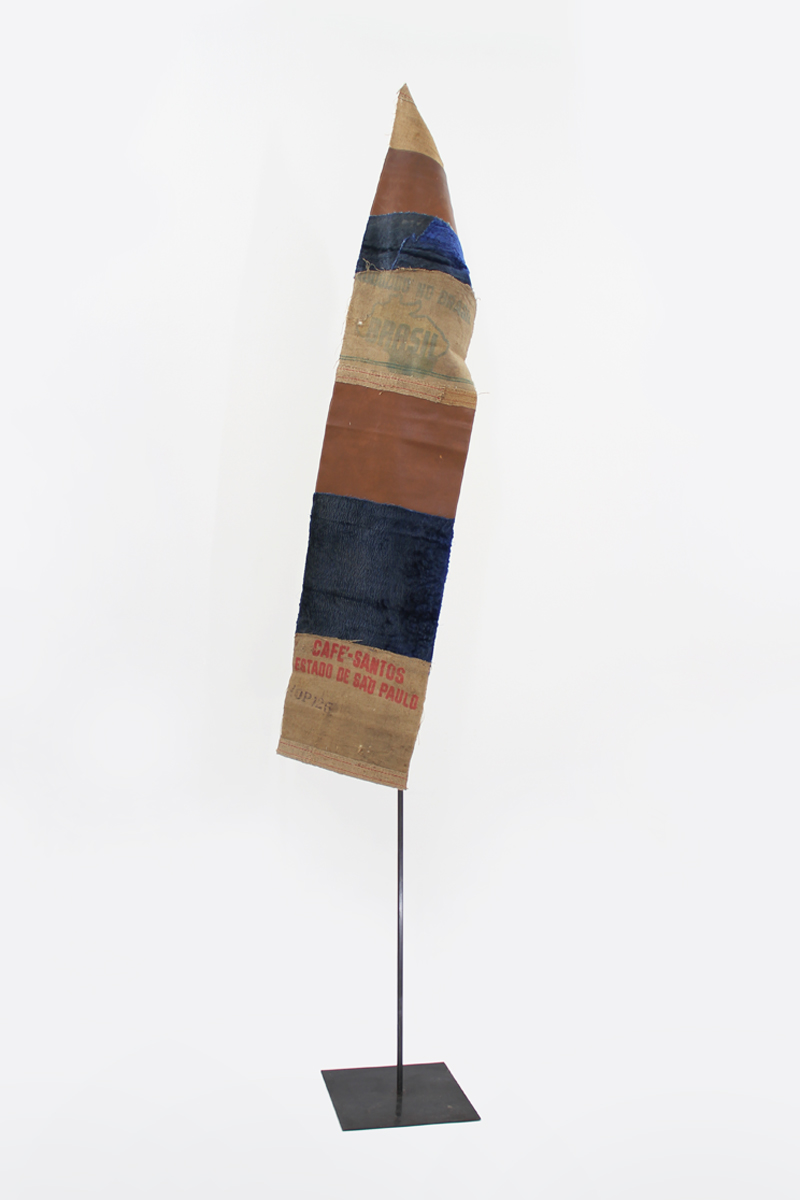
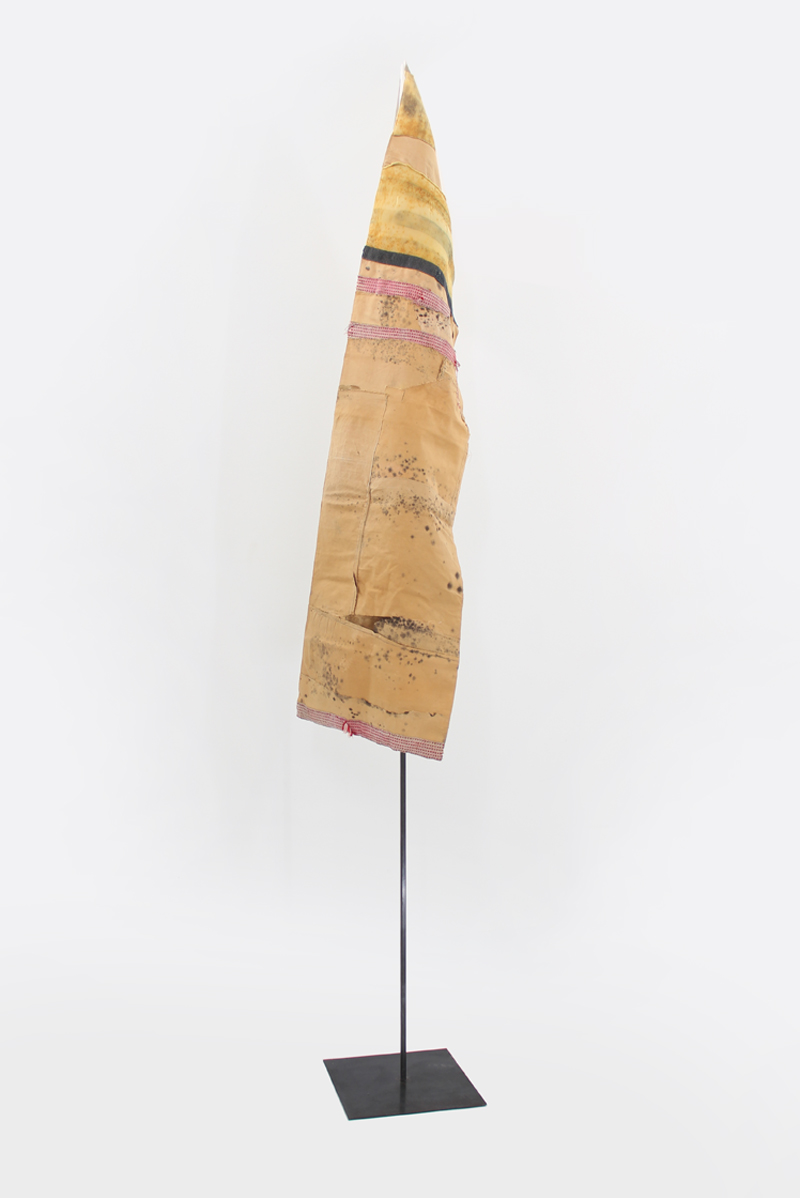
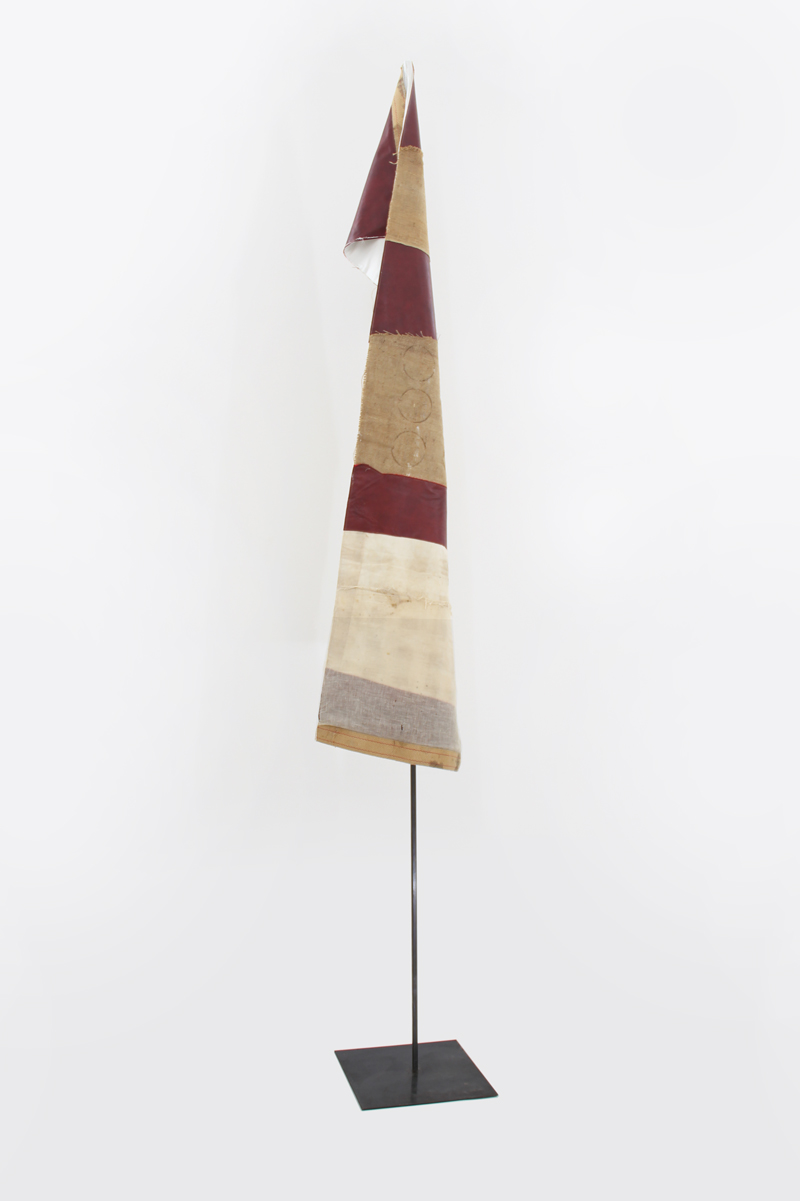
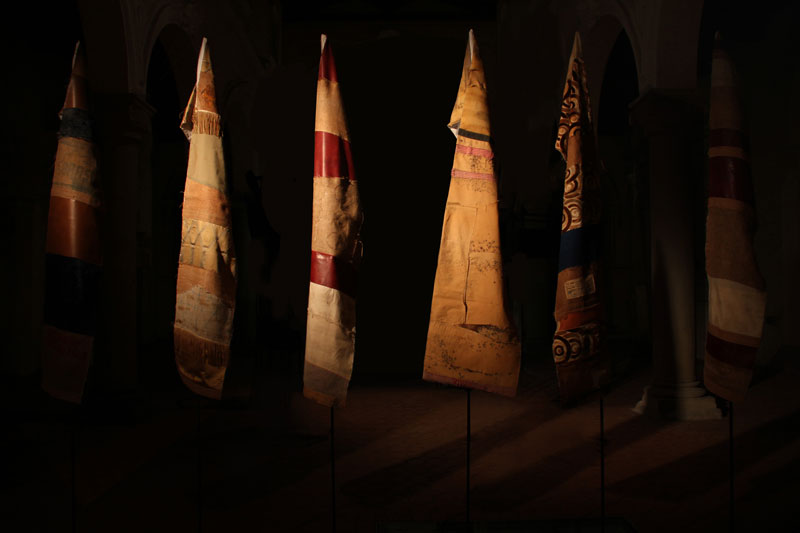
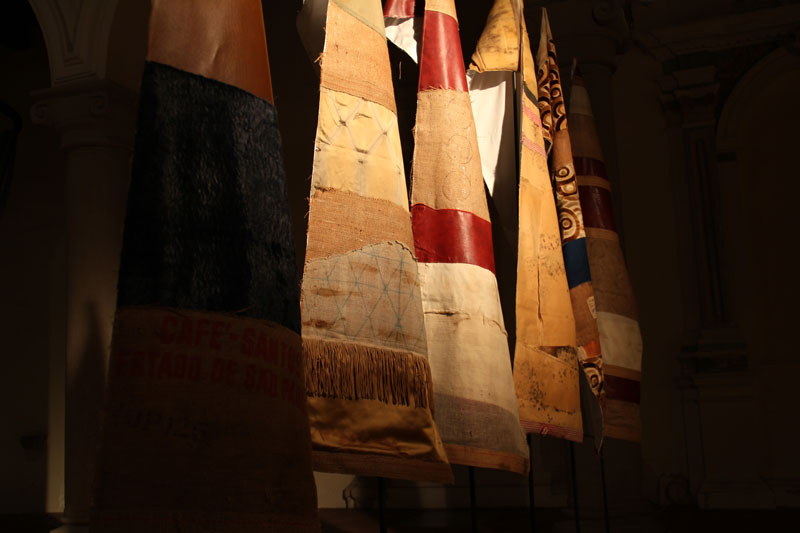
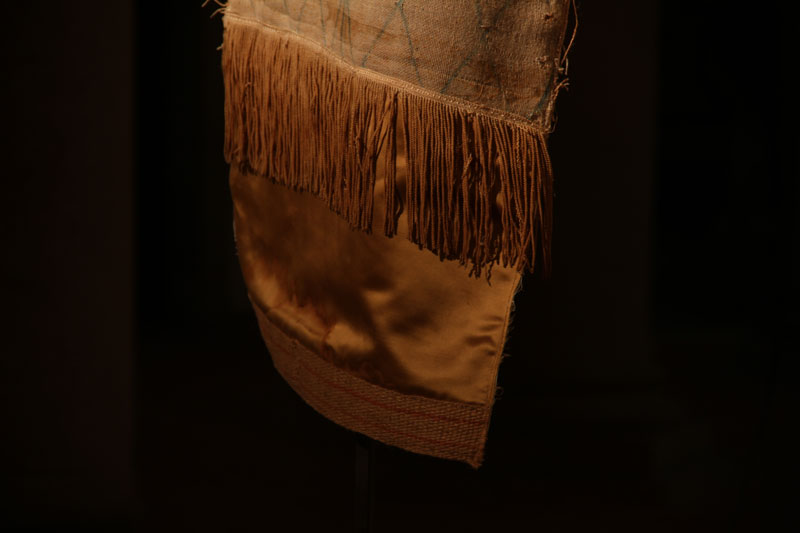
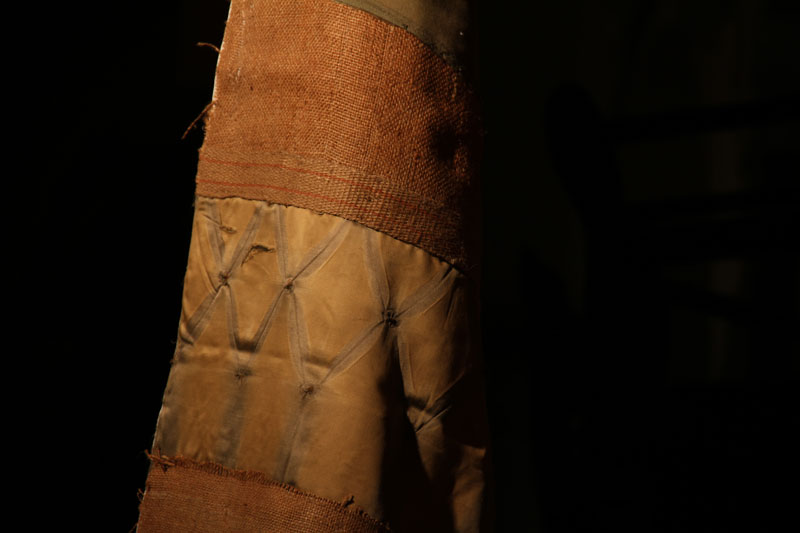
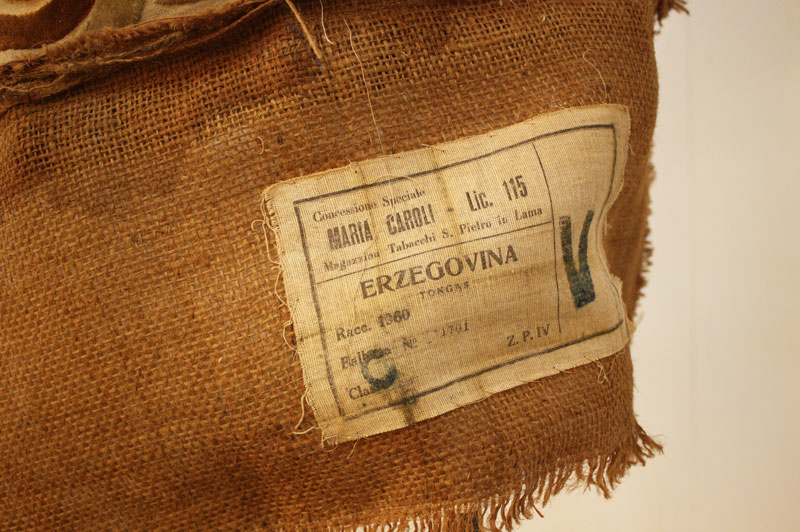
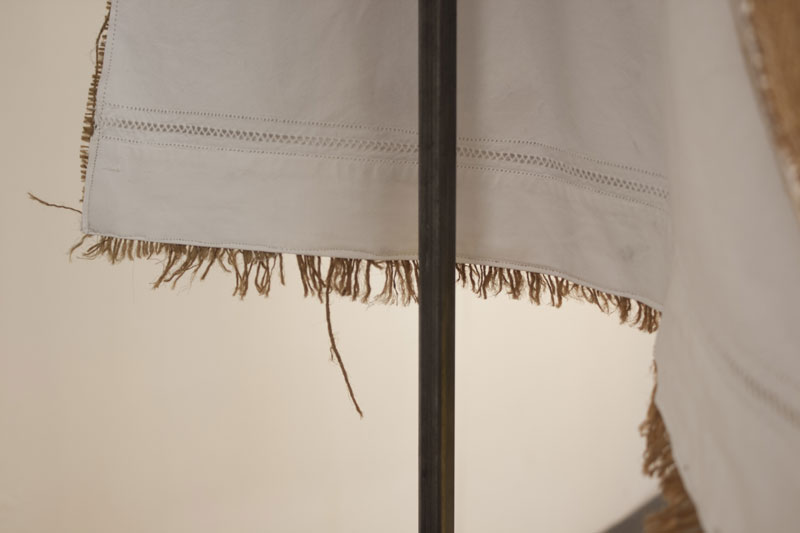
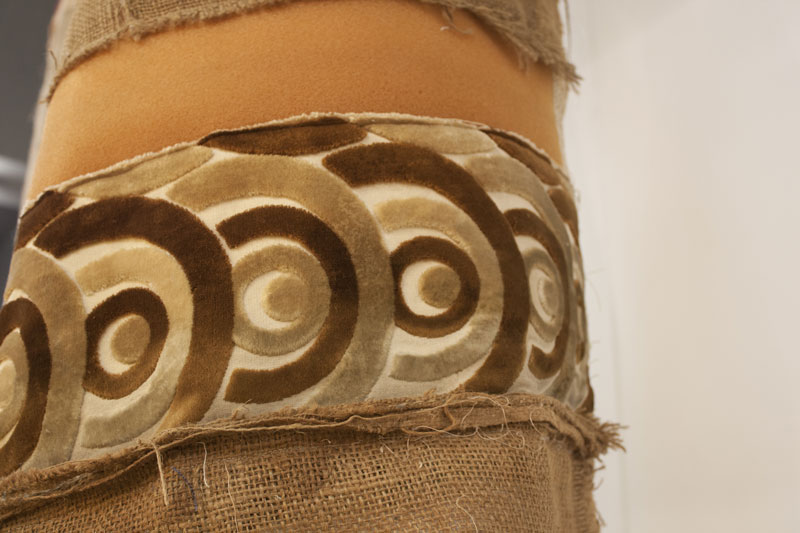
Acciaio, cotone, ecopelle, velluto, raso, juta.
40 x 40 x H300 cm
2017
